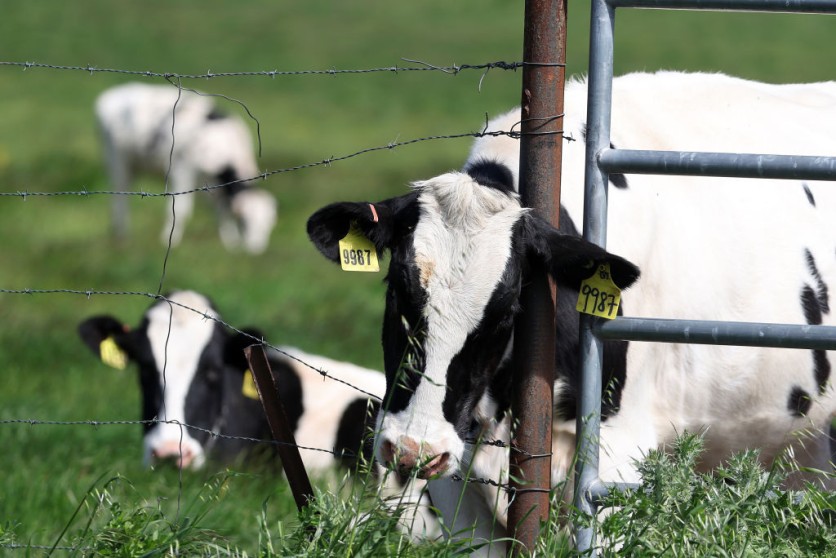Amid mounting concerns over the spread of bird flu in the United States, federal agencies have intensified efforts to mitigate the risk of transmission through milk and meat products.
Collaborative measures undertaken by the Centers for Disease Control and Prevention (CDC), the Food and Drug Administration (FDA), and the United States Department of Agriculture (USDA) aim to safeguard public health against potential outbreaks.

PETALUMA, CALIFORNIA - APRIL 26: Cows graze in a field at a dairy farm on April 26, 2024 in Petaluma, California.
Federal Agencies Intensify Efforts Amid Bird Flu Concerns
In a recent briefing (via The Atlanta Journal-Constitution), representatives from these agencies stressed the ongoing testing initiatives and outlined vital steps to address the evolving situation. The agencies emphasized the importance of monitoring dairy products and meat to prevent the spread of the virus.
One of the pressing concerns addressed during the briefing was the possibility of human-to-human transmission of bird flu. According to the CDC, there has been a multi-state outbreak of HPAI A(H5N1) bird flu in dairy cows since March 25. These bird flu viruses have never before been discovered in cattle.
One case of HPAI A(H5N1) infection in humans was confirmed by the CDC after the patient was exposed to dairy cattle in Texas that were suspected of being infected with the virus.
The recent discovery of bird flu infections in dairy cattle has raised alarm bells among health authorities. Dr. Rosemary Sifford, USDA's chief veterinary officer, shed light on the origins of these infections, attributing them to a single "spillover event" from wild birds.
The subsequent movement of infected cattle between states has contributed to the spread of the virus. However, she noted that most infected cows recover within two weeks with minimal associated mortality.
Collaborative Measures, Ongoing Testing to Combat Bird Flu Spread
Additionally, the FDA conducted extensive testing on 201 commercially available milk products to assess the extent of contamination in dairy products.
Donald A. Prater, acting director of the FDA's Center for Food Safety and Applied Nutrition, revealed that while genetic traces were found in some samples, no viable virus was detected. Additional testing on dairy products, including cottage cheese, sour cream, and powdered infant formula, obtained similar results.
In response to the outbreak, federal agencies have reiterated warnings against consuming raw milk and cheese, citing potential health risks. Despite the availability of FDA-approved antiviral drugs for treating H5N1 influenza, cautionary measures remain paramount in preventing further transmission.
The discovery of bird flu infections in dairy cows marks a significant development in the ongoing battle against avian influenza. Dr. Demetre Daskalakis, director of the CDC's National Center for Immunization and Respiratory Diseases, emphasized the importance of continued surveillance and genetic sequencing to monitor the virus's evolution.
He clarified that viruses are always evolving, and scientists are always examining them to find any genetic changes that could endanger public health.
Stay posted here at Tech Times.
Related Article : Bird Flu in Milk? Early Tests Spark Caution, But FDA Reassures Consumers

ⓒ 2026 TECHTIMES.com All rights reserved. Do not reproduce without permission.




